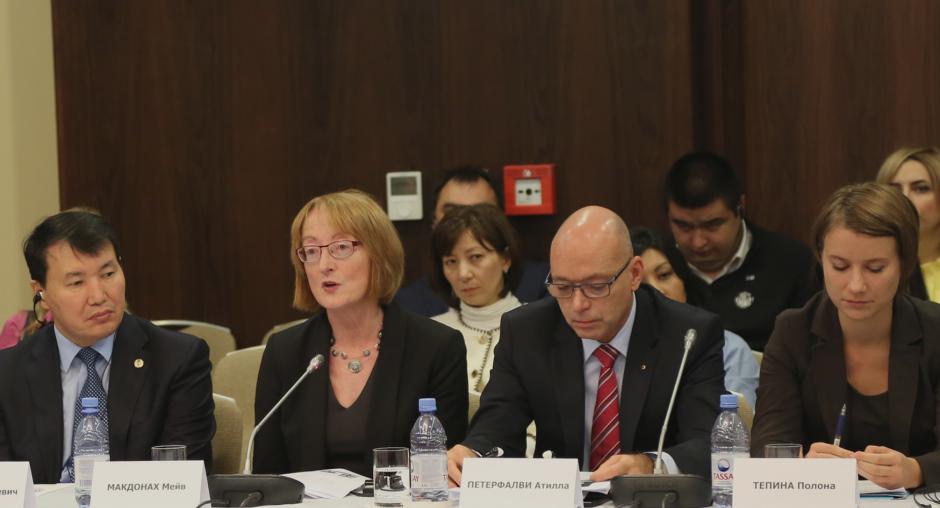OSCE supports high-level discussion in Kazakhstan on access to information and countering corruption

ASTANA, 25 September 2015 – An OSCE-supported international conference on developing national legislation on access to information, public councils under government institutions, and countering corruption took place today in Astana, Kazakhstan.
The event was co-organized by the OSCE Programme Office in Astana, the Legal Council of the Nur Otan Party and the Legislative and Judicial Reform Committee of the Mazhilis of the Parliament and the Legal Policy Research Centre NGO with the support of the British Embassy.
Some 100 high-level governmental officials, parliamentarians, representatives of civil society, national and international legal experts as well as journalists reviewed the text of the laws and proposed amendments to this anti-corruption legislation package aimed at increasing political accountability and transparency of governmental activities. The adoption of the three discussed laws is a key element of the national anti-corruption strategy in line with the “100 Concrete Steps” programme on implementing five institutional reforms proposed by President Nursultan Nazarbayev.
Nurlan Abdirov, Mazhilis Deputy in Kazakhstan’s Parliament and Head of the Legal Council under the Nur Otan Party said: “The introduction of new mechanisms and procedures for transparency of central and regional authorities, the establishment of public councils and comprehensive and innovative approaches to organizing the work of civil servants will enhance the effectiveness of government’s performance, raise public awareness of its decisions and strengthen the implementation of anti-corruption reforms.”
The legal opinion on the draft law on access to information at different stages of its development, which was prepared by OSCE expert Prof. Maeve McDonagh of Ireland, was presented and discussed at the event. She said: “International standards on access to information and decisions of human rights supervisory bodies, including the UN Human Rights Committee and European Court of Human Rights, have recognized that the right to information is the integral and essential element of the exercise of the right of freedom of expression.” She noted that the key concept of access to information laws must be based on the principle of maximum disclosure.
Experts from Georgia, Germany, Hungary, Slovenia and the Russian Federation as well as from the Organization for Economic Co-operation and Development (OECD) and the OSCE Office for Democratic Institutions and Human Rights (ODIHR) presented their analysis concerning the proposed legislation. They also shared international experience and best practices relevant to national legislation and policies on ensuring access to information and countering corruption.
The conference concludes the series of public and expert discussions aimed to develop the three laws in line with international standards, which have recently been submitted to the Parliament.
The event is part of the Office’s multi-year efforts to promote fundamental freedoms, public participation in decision-making and anti-corruption initiatives in line with international standards and best practices.
